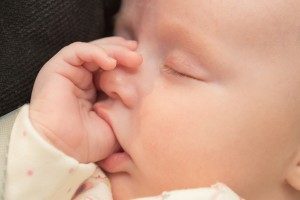 Study after study shows that reading to young children is beneficial in several ways, and now another study can be added to the list. Positive effects of reading at least 1 book a day to a baby starting at 2 weeks of age can be seen in the baby's language by 9 months of age.
Study after study shows that reading to young children is beneficial in several ways, and now another study can be added to the list. Positive effects of reading at least 1 book a day to a baby starting at 2 weeks of age can be seen in the baby's language by 9 months of age.
Reading aloud to your child increases the child's vocabulary and speech, but it is also a great way to bond with your child.
The researchers point out that many studies find that: "Ultimately, the age at which parents begin reading to their children correlates with language development and academic achievement."
Each parent in the study was given 20 popular young children's books to read to their baby. A few were definitely above an infant's comprehension level (e.g., Owl Babies by Waddell), while others could be considered by many as first books (e.g., the board book Everywhere Babies).
Science Daily: Daily, consistent parental reading in the first year of life improves infants' language scores
Daily reading improved language development in infants 12 months and younger, according to a recent study by researchers at the Marshall University Joan C. Edwards School of Medicine. ...continue reading "Reading to Infants Helps With Language Development"
